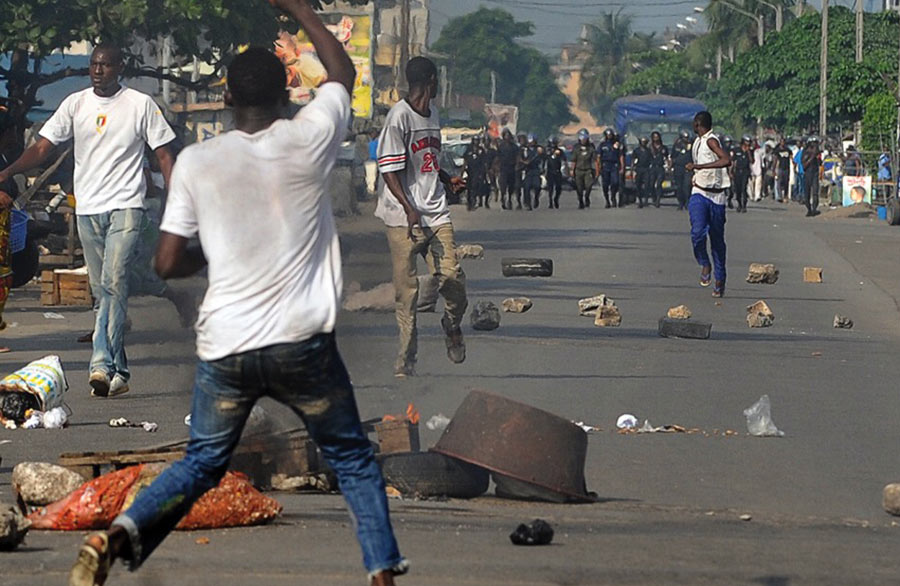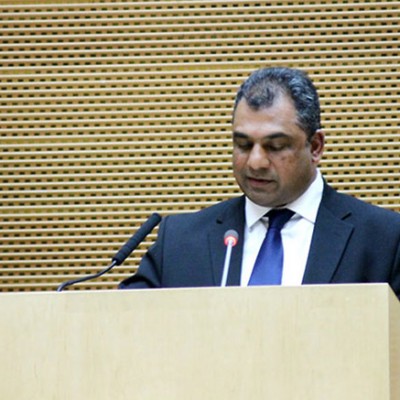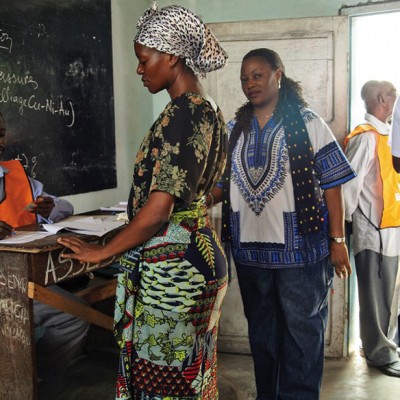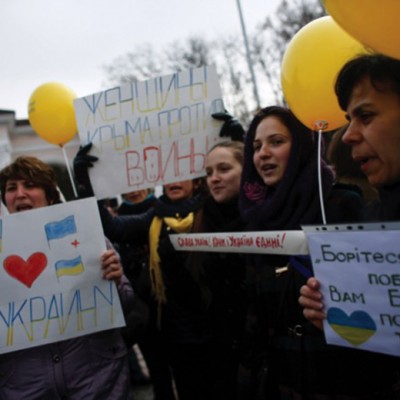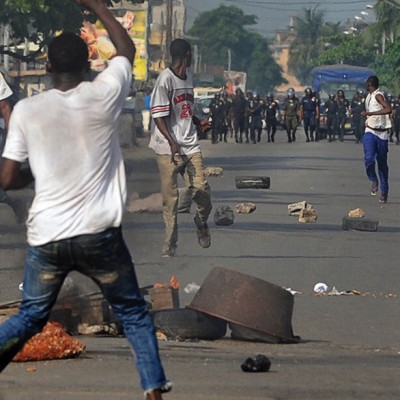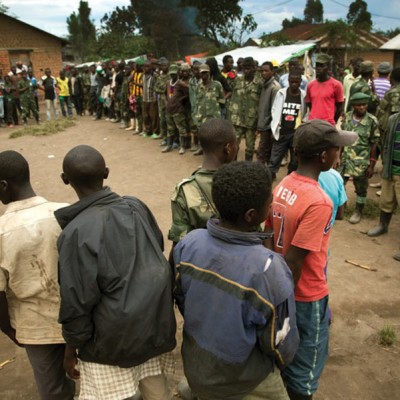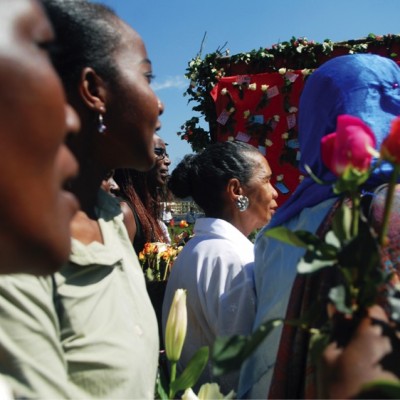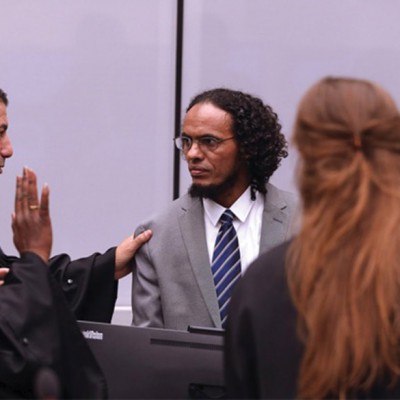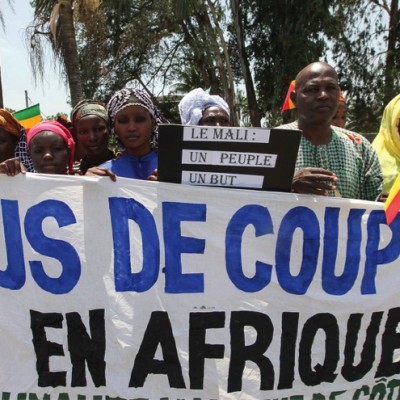Introduction
The debate within liberal peace studies on how to build peaceful societies has produced an important body of knowledge that is informing and shaping the governance of many countries in Africa and around the world. This article critically evaluates the assumptions and values of liberal peace on statebuilding by situating it within the current debate in peace studies, and focuses particularly on one of the key assumptions in liberal peace literature: that peace is necessarily the outcome of liberal democracy, market-based economic reforms and the formation of institutions associated with modern states.1 A case study from East Africa illustrates this paradigm. The main question is: What are the challenges to liberal peace in post-colonial African contexts? To interrogate the paradigm underpinning liberal peace, the article concentrates on recent statebuilding activities in South Sudan.
This article specifically pays attention to the limits of statebuilding processes, as documented in academic literature,2 without concerted efforts simultaneously to build the nation. Using the case of South Sudan, where liberal peace has been implemented without success, the case is made for a significant investment in nation-building activities such as addressing the legacies of conquest and violence, fostering social cohesion between communities, and strengthening ongoing dialogues within and between societies.
Statebuilding: Underlying Assumptions
The 1990s saw the emergence of statebuilding as an indispensable component of liberal peacebuilding. Liberal peace after the cold war and during the war on terror has rapidly turned into an age of intervention. Along with various econometrics3 for measuring peace, a new type of literature emerged that discussed the so-called fragility of the state,4 state failure5 or nation failure.6 The Global Peace Index and the Fragile States Index are just two examples of indices in liberal peace that claim to quantify peace and identify institutions of state associated with sustainable peace. One side of this scholarly debate focuses on state failures (the failed state debate). The other side focuses on liberal peace, seen as the solution to the problem of failing or failed states. Proponents of liberal peace have developed a system with instruments – usually categories, indices and warnings – to measure and rank states along a spectrum from strong/stable states (usually in the West) to quasi, weak, failing or failed states (usually not in the West). The debate has political and economic implications, as liberal peace is linked to neoliberal economic policies for building developmental states. The common thread between these instruments and the literature on them is that they are guided by theories of liberal peace. However, the assumptions driving statebuilding are now being challenged. This article focuses on statebuilding in the African context as rooted in liberal peace efforts.
For some scholars, the gravest problem in Africa is state failure or state fragility,7 while for others the main problem is rooted in the failure of nation-building and statebuilding.8 The group of “state failure” scholars argue that the solution is statebuilding, or the formation of liberal institutions of the state. In the study of international relations in the West, the “state is the principal unit of the international system and Western states provide the paradigm for its organization”.9 For Siba Grovogui, professor of international relations theory and law at Cornell University, there is an epistemological failure about the nature of the state that is derived from the peace of Westphalia in 1648 and the post-colonial African state. Grovogui writes that “instead of treating the African condition as evidence that undermines the empirical thesis of a uniform international morality, theorists often construe deviations from the Western state model as a sign of the inability of African states to live up to the requirements of sovereignty”.10
Scholars like Grovogui,11 Francis Deng12 and Mahmood Mamdani13 locate the problem in the conquest of Africa and the institutional legacy of colonial statecraft. For these scholars, colonialism and failure to reform the legacies of conquest in the post-colonial period have led to contested visions of the nation. The solution is to find a model that fuses diverse nationalities into a unified framework of the nation.
Liberal peacebuilding is characterised by certain features and assumptions. The first is that it is often driven from above, driven by external actors, justified as apolitical, and benevolent. The assumption is that the problem is internal, but the solution is external. There are many definitions of peacebuilding. For the purposes of this article, the United Nations (UN) definition as used in the Brahimi Report is referenced to include: “Activities undertaken on the far side of conflict to reassemble the foundations of peace and provide the tools for building on those foundations something that is more than just the absence of war.”14 The goal is the reduction and prevention of conflicts, by strengthening national and local capacities for conflict management.15 The second assumption is the conflation of democracy (political and social) with elections. In an attempt to build state institutions in politically and socially divided or conflict-prone countries, international organisations – and the UN in particular – have prioritised international interventions over local interventions, and top-down statebuilding over piecemeal, bottom-up approaches.
Today, more resources are being diverted towards peacebuilding, peacekeeping and post-conflict (re)constructions. The implication is profound for those on whose behalf the interventions of liberal peace are being waged. It is important to critically examine the assumption of liberal peace in divided societies and whether or not it is a viable model for countries most affected by conflicts. Liberal peace is defined as “the promotion of democracy, market-based economic reforms and a range of other institutions associated with ‘modern’ states as a driving force for building ‘peace'”.16 It covers a broad range of agendas and sectors: security, development, humanitarian aid, governance, democracy and rule of law. The theoretical underpinning of liberal peacebuilding is liberal peace.17
The third assumption in liberal peace is that liberally constituted societies are more peaceful; liberal democratic societies are more peaceful and prosperous than undemocratic “illiberal societies”.18 This idea was first articulated by Immanuel Kant in 1795,19 who argued that in democracies, the diversity of institutions creates checks and balances, and the cost of war borne by the people places restraint on leaders from waging wars. Kant further noted that the culture of negotiation and conciliation provides a common currency for bargaining, negotiating and settling disputes. Internationally, this has been termed “democratic peace”. Further, liberal democracies are said to not be war-prone. Democracies do not fight other democracies.20 Michael Doyle and R.J. Rummel both developed and elaborated the Kantian basis for the democratic peace proposition. For Doyle, “constitutionally secure liberal states have yet to engage in war with one another.”21 The conclusion is that liberal democratic states are only involved in wars with non-liberal states. Rummel concluded his analysis with support for the theory that libertarian states are “not only less violence prone, but when foreign relations includes the perception of other libertarian states, this inhibition becomes a mutual barrier to violence”.22
According to liberal peace theory, the interdependence between democratic countries places constraints upon those countries and prevents them from going to war with each other.23 Although this idea has a long history, today it continues to be argued that “full democratization advances peace but limited democratization advances war”.24 Here, democratisation and peace are understood to be liberal. Some scholars cast doubt on this assumption and instead show that democracies do fight other democracies, thus the claim has been shown to be unfounded.25 Germany was a democracy and yet it fought in World War II. Sebastian Rosato’s study also lists the British–French–Israeli coalition’s attack on Egypt (1956) and the Israeli initiation of the Six Day War (1967).26 These cases support the argument that democracies do not appear to be less likely than non-democracies to launch surprise attacks.27
According to James Lee Ray, despite the lack of definitive evidence for democratic countries being less warlike overall, the influence of the argument persists in international relations. Proponents of the democratic peace argument fail to account for the role that democratic states play in causing problems, and supporting and facilitating activities that sustain war and conflicts in foreign countries – for example, the cold war and the war on terror. This, in turn, has implications for international relations, peace studies, liberal democratic promotion and discourse on democratic peace, and informs liberal peacebuilding activities in many divided societies. The politics of intervening to resolve conflicts in foreign countries is rife with problems, the most problematic being the knowledge undergirding interventions. Morgan Brigg, a senior mediator and lecturer at the University of Queensland, has argued that conflict “resolution’s practical possibilities unwittingly re-inscribes dominant ways of thinking about political community, order, and politics”.28 The field “cannot credibly address pressing conflicts across difference if it denies some of the key differences to which it aims to respond”.29 From academic institutions to organisations in the field of peacebuilding, there is a need to critically engage with and to decolonise knowledge that informs policy.
Liberal Peace and Statebuilding in Africa
Along with its cousin, neoliberalism, liberal statebuilding has been thoroughly implemented in Africa over the last three decades. The driving force behind liberal peace is the emphasis on market-oriented policies, top-down reform, the exclusion of local key stakeholders and the promotion of liberal democratisation, but seemingly without a thorough understanding of the deep-seated causes of conflicts. The neoliberal structural adjustment programmes of the 1980s gave way to a wave of democratisation, which ushered in a new focus on governance. The problem of state disintegration caused by civil wars, external interventions and prolonged violent conflicts called for new solutions. Experiments in liberal nation-building and statebuilding have extended to Afghanistan, Iraq, Somalia, Burundi, Liberia, Sierra Leone, Congo, Rwanda, Cambodia, Bosnia and El Salvador, and include recent examples such as South Sudan. International agencies are called in to restore law and order, broker peace agreements, initiate peacebuilding processes and (re)build state structures and institutions in a rapidly changing global context.30 These states are subsequently subjected to pervasive transformation and restructuring in the wake of global external demands, such as structural adjustment programmes, economic conditionalities and military interventions.31 The impact on recovery has been likewise uneven between East Asian and Southeast Asian states and those in Africa. The difference is due to the institutional legacy of colonial conquests, the level of transformation of state structures, the relationships between state and society, and external impositions. This liberal project has come under critical scrutiny and has generated a lively debate in academic and policy circles.32
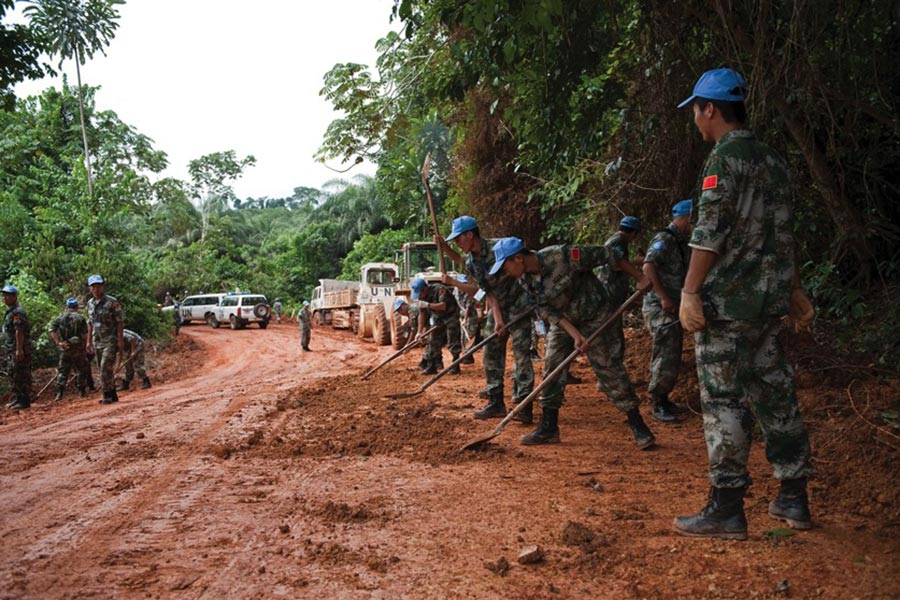
In the 1960s, Arthur Lewis33 wrote vigorously against the promotion of liberal ideals that were not taking local contexts into account. He distinguished between two meanings of liberal democracy. The first was representative democracy and participation in decision-making, while the second type of liberal democracy was characterised by the concept that the will of the majority shall prevail. For Lewis, the second type – where the will of the majority prevailed at the expense of minority voices – was where politics became a zero-sum game.34 While this process has been applied to class-based societies, he noted that “translated from a class to a plural society this view of politics is not just irrelevant; it is totally immoral… and inconsistent with the primary meaning of democracy and is destructive to the purpose of harmonious nation-building”.35 For him, the problem of plural societies – typical of the African context – called for a wholly different conceptual framework of organising society to the Western-imported model that prioritises individualism over collectivism, political democracy (for example, electoral contests) over social democracy (social transformation, and social and economic justice) and a winner-takes-all culture.
Oliver Richmond, a leading critic of liberal peace, has vigorously criticised the premise of the one-size-fits-all paradigm that undergirds the theory of liberal peacebuilding with its variants such as liberal democratic order, free market reform and development, as well as conceptualisations of human rights and civil society.36 When the term “local ownership” is used by the international community, rather than strengthening local institutions and promoting them, these local institutions are side-lined and denied ownership of the process.37 In the case of South Sudan, international organisations have become so dominant that local key stakeholders have often been excluded from important deliberations. Tarnjeet Kang, who conducted extensive fieldwork in 2014 and 2015 on community self-determination within South Sudan’s education system, found that the impact of neoliberal policies on development practice at the community level often removed national government as a key stakeholder, or minimised its role and responsibilities. Moreover, these policies were disguised under internationally funded community empowerment programmes, which gave “the illusion of empowerment and choice on the part of communities, while in actuality creating regulations and restrictions that inherently dictate how, where and for whom development occurs”.38
The universalisation of each intervention, and attempts to build a modern state that resembles those found in the West, have pushed international organisations to adopt a top-down approach that is framed in cosmopolitan language. The language assumes that what works in the West works best everywhere – for example, a free market, liberalisation and liberal democracy are universally desirable.
One of the main challenges to the theory of liberal peace and one of its variants, liberal democracy, is the universalisation of the concept itself. Scholars like Bhikhu Parekh and Claude Ake reject the universalisation of liberal ideas, and instead argue that these ideas should be more context-specific. Parekh writes that ”the liberal principle of individuation and other liberal ideas are culturally and historically specific. As such a political system based on them cannot claim universal validity.”39 Ake, on the other hand, notes that the dominant model in Africa was democracy based on liberal ideals, which was unsuitable for the African context.40 Democratisation based on liberal ideals can be seen in the (re)building of state institutions in South Sudan and Rwanda, or in the peacekeeping efforts in Somalia, Burundi, Liberia, Sierra Leone, Central African Republic, Mali, Sudan and the Democratic Republic of the Congo (DRC). For Ake, African societies were already imbued with democratic principles and values, which have been side-lined by the influx of liberal ideals about the construction of a modern state. These systems were “invariably patrimonial, and consciousness was communal; everything was everybody’s business, engendering a strong emphasis on participation. Standards of accountability were even stricter than in Western societies. Chiefs were answerable not only for their own actions but for natural catastrophes such as famine, epidemics, floods, and drought.”41 Hence, the rise of liberal ideals such as liberal peace, democracy and top-down, one-size-fits-all statebuilding have caused more harm than good. It is hard to think of South Sudan’s disintegration into a new civil war, the prolonged civil war raging in the DRC, or the failures of external interventions in Somalia and Mali without critically interrogating the role of international organisations (including the UN) and the approaches these organisations adopted or imposed on local contexts, while simultaneously excluding key stakeholders from the process.
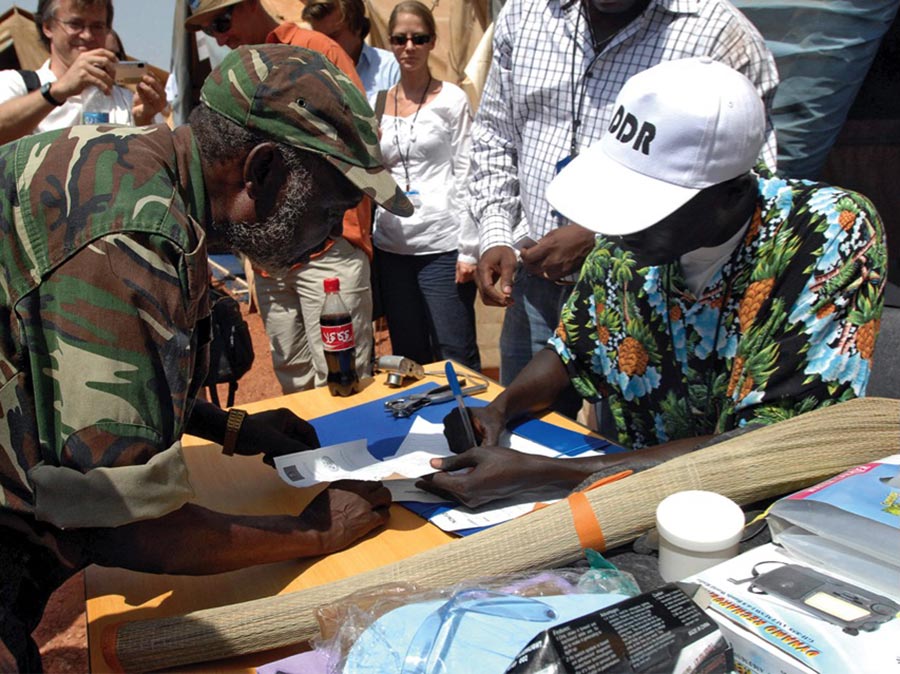
Another challenge to liberal peace is rooted in the type of analysis that informs liberal interventions – for example, peacekeeping, peacebuilding and statebuilding. Here again, the assumption is that post-colonial states in Africa are authentic and legitimate, and should continue to exist perpetually. Underlining this assumption is the failure to come to terms with the institutional legacy of colonialism in Africa, and how that legacy continues to haunt African countries in their attempt to build states that effectively manage diverse populations. What is missing from the liberal discussion of statebuilding activities in Africa is a serious engagement on the nature of the post-colonial state itself. Mamdani, a leading scholar on African politics, has shed light on the institutional legacy of colonial statecraft in Africa and its legacy in the post-colonial period. According to him, the hallmark of ruling used in the conquest of Africa produced centralised despotism in urban areas and decentralised despotism in rural areas. In countries formerly colonised by Great Britain, for example, Mamdani notes that these countries functioned on the basis of the dual organisation of state authority – one rural, the other urban; one confronting the peasants, and the other confronting the rest of society. The outcome was a bifurcated state and a legal dualism that undergirded colonial institutions.42 Without understanding how the modern African state was crafted in the colonial period, it is difficult to see how liberal interventions can make a significant contribution to genuine statebuilding. Concerted efforts must be made to understand how African countries were restructured in the colonial period and consolidated in the post-colonial period.
Liberal Peace and Statebuilding in South Sudan
South Sudan is the latest example of the experiments of statebuilding from above, as implemented by the Troika – the United States (US), the United Kingdom (UK) and Norway – under the auspices of the UN and its many agencies. South Sudan is also a good example of liberal peace theory in practice. As such, it teaches us important lessons about the prospects and challenges of building a modern state from above. South Sudan became the world’s newest nation in 2011; the outcome of a celebrated referendum. The donor community began a programme of building state institutions in South Sudan with an assumption that prioritised the formation of various institutions of state, security sector reform and liberal market ideology with a focus on oil extraction through Sudan to the north. The focus was placed on the ruling political elite, the military and the various militias that took up arms against the government in Sudan. A massive programme of demilitarisation, disarmament and reintegration (DDR) ensued.
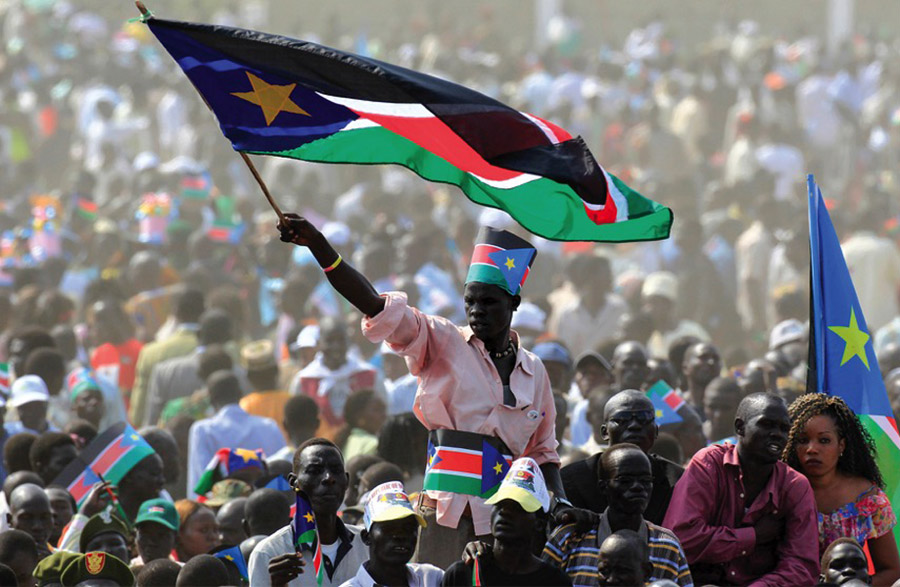
This liberal, often technocratic, nation-building project unravelled and South Sudan disintegrated into a vicious civil war, which has now led to the death of thousands of people,43 with over two million people being internally displaced44 or forced into neighbouring countries as refugees.45 The failures in South Sudan were multiple, starting with the failure to diagnosis the problem, failure to plan adequately for an independent state, and many failures in demilitarising society and politics. The donor community equated development with stability, leading to a focus on delivering services at the expense of aiding the growth of a stable nation. The utter failure to disarm, demilitarise and reintegrate former combatants, and the assumption that “only those with the capacity to wage war have the right to determine the terms of the peace”,46 has come to haunt South Sudan in the post-independent period. There was another failure: the failure to view nation-building for what it really is – a political process. The Troika also agreed to defer critical outstanding issues – such as security arrangements, institutional reform, historical legacies, citizenship, border disputes and the exclusionary policies of key stakeholders – between and within the two Sudans, believing that they would be amicably resolved once South Sudan became independent. The donors underestimated the various dimensions of the Sudanese civil wars and the problems within and between the two Sudans. Thus, the challenge today for South Sudan and many African countries is how to reconcile between the rule of law and political sovereignty – and, as Mamdani states, “how to ensure that Africa’s hard won independence is not compromised in the African struggle for democracy.”47
The problem is not confined to South Sudan. A look around the region shows similar trends in statebuilding from above and an uncritical embrace of liberal peace. The three countries of Sudan, South Sudan and the DRC are home to the largest UN peacekeeping missions in the world, with billions of dollars invested to build states, end violence and promote stability and (re)construction. Today, none of the countries in north-eastern and western Africa (Sudan, South Sudan, DRC, Liberia and Sierra Leone) have shown evidence that a comprehensive embrace of liberal peacebuilding will deliver sustainable peace and economic prosperity. This raises the question of whether liberal peace – along with its variant, liberal democracy – is an adequate theory that should inform statebuilding in divided societies.
South Sudan was supposed to be the poster child for an effective statebuilding project driven from above, funded by donor countries and implemented by various UN agencies. Instead of investing in an organic political process that strengthened local democratic institutions and key stakeholders, donor communities focused on the ruling political and military elites, who have ruled with utter impunity and lack of accountability. This top-down experiment in statebuilding came to be dominated increasingly by those who resorted to arms over those who chose non-violence.48 The result has been a vicious cycle of violence, with untold suffering for the civilian population. Instead of a technocratic programme to build modern states like those in Europe, it is time to combine statebuilding activities with nation-building. With the latter, if success is to be achieved in the future, the focus should be placed on understanding how modern African states were formed in the colonial period and the deep-seated causes of conflicts, and engage local key stakeholders in the process. One way to foster a more inclusive and deliberative process would be first to have the correct analyses of the problem, and to understand the historical legacies of wars in countries that are affected by violence. This requires that nation-building and statebuilding activities should be complementary processes, anchored in local contexts and driven by key stakeholders. There is a need for concerted efforts to promote local ownership, instead of the process being driven by donor communities and international organisations that often have short-sighted goals. Taken together, these activities should promote an inclusive democratisation (political and social) process, foster and support social cohesion between and within communities, demilitarise society and politics, and initiate a reconciliation process to deal with the legacies of war.
Conclusion
This article interrogates statebuilding efforts by exploring some of the assumptions and values of liberal peacebuilding, along with the theory of liberal peace that underpins it. In the first two sections, the article showed that liberal peace is built on certain assumptions – market-oriented policies, top-down reform, the exclusion of local key stakeholders and the promotion of liberal democratisation – and without a thorough understanding of the deep-seated causes of the conflicts. Rosato acknowledged that in democratic peace theory, the claim that democracies do not fight other democracies and engage in militarised disputes with each other, because of shared norms and institutions, is among the most powerful liberal contribution to the debate on the causes of war and peace.49 However, he concludes that while there is peace among democracies, “it may not be caused by the democratic nature of those states.”50 Moreover, democracies do not reliably externalise their domestic norms, institutions and mechanisms for resolving conflicts. There is no definitive evidence that liberal democratic countries are less warlike. Proponents of the democratic peace theory have failed to account for the foreign policies of liberal states during the cold war and the war on terror. Instead, there is evidence that democracies do not appear to be less likely than non-democracies to launch surprise attacks.
The local context is often poorly understood. Local actors are often excluded from key deliberations, and the focus of donor organisations is often on the ruling political elites and a security sector reform agenda – for example, DDR. One key assumption is that the problem in Africa – often depicted as state failure – is internal but the solution is external, necessitating a universally acceptable programme for statebuilding.
In the last sections, this article explores the limits and challenges to liberal peace in the context of divided societies. The case of South Sudan, the world’s newest state, shows how the misguided liberal programme implemented shortly after the Comprehensive Peace Agreement (CPA) was signed has failed to deliver sustainable peace. The failure on the part of the donor community was prioritising statebuilding at the expense of nation-building activities, which could have fostered social cohesion within and between communities and dealt with the legacy of war.
To build durable peace, it is important to diagnose the problem properly before prescribing solutions. The solution to a problem should be sought from within the parameters of the problem itself. One approach to doing this is to ensure that peace efforts engage key local stakeholders. Second, peacebuilding must be seen for what it is – a political process that should be democratised to empower local actors – and process needs to be anchored in local contexts and driven by those most impacted by peacebuilding efforts and their consequences. In so doing, we can begin to give a voice to those on whose behalf peacebuilding is conducted.
Endnotes
- Messner, J.J., Haken, Nate, Hendry, Krista, Taft, Patricia, Lawrence, Kendall, Brisard, Laura and Umaí±a, Felipe (2014) Failed States Index 2014: The Book. Washington DC: The Fund for Peace; The Institute for Economics and Peace (2014) ‘Global Peace Index 2014’, Available at: <http://www.visionofhumanity.org/sites/default/files/2014%20Global%20Peace%20Index%20REPORT.pdf> [Accessed 8 July 2016].
- Richmond, Oliver (2013) Failed Statebuilding Versus Peace Formation. Cooperation and Conflict, 48 (3), pp. 378–400; Jabri, Vivienne (2013) Peacebuilding, the Local and the International: A Colonial or a Postcolonial Rationality? Peacebuilding, 1 (1), pp. 3–16.
- The Institute for Economics and Peace (2014) op. cit.
- Grimm, Sonja, Lemay-Hébert, Nicolas and Nay, Olivier (2014) ‘Fragile States’: Introducing a Political Concept. Third World Quarterly, 35 (2), pp. 197–209; Rocha De Siqueira, Isabel (2014) Measuring and Managing ‘State Fragility’: The Production of Statistics by the World Bank, Timor-Leste and the G7+.’ Third World Quarterly, 35 (2), pp. 268–283.
- Messner, J.J. et al. (2014) op. cit.
- Acemoglu, Daron and Robinson, James A. (2013) Why Nations Fail: The Origins of Power, Prosperity, and Poverty. New York: Crown Business; Collier, Paul (2007) The Bottom Billion: Why the Poorest Countries are Failing and What Can be Done About It. New York: Oxford University Press.
- Brinkerhoff, Derick (2014) State Fragility and Failure as Wicked Problems: Beyond Naming and Taming. Third World Quarterly, 35 (2), pp. 333–344; Englebert, Pierre and Tull, Denis M. (2008) Postconflict Reconstruction in Africa: Flawed Ideas about Failed States. International Security, 32 (4), pp. 106–139; Rotberg, Robert (2004) The Failure and Collapse of Nation-states: Breakdown, Prevention and Repair. In Rotberg, Robert (ed.) When States Fail: Causes and Consequences. Princeton: Princeton University Press.
- Rivkin, Arnold (1969) Nation-building in Africa: Problems and Prospects. New Brunswick: Rutgers University Press; Deng, Francis Mading (ed.) (2010) Self-determination and National Unity: A Challenge for Africa. Trenton: Africa World Press.
- Grovogui, Siba (2002) Regimes of Sovereignty: International Morality and the African Condition. European Journal of International Relations, 8 (3), p. 320.
- Ibid., p. 316.
- Ibid.
- Deng, Francis Mading (1995) War of Visions: Conflict of Identities in the Sudan. Washington DC: Brookings Institution.
- Mamdani, Mahmood (1996) Citizen and Subject: Contemporary Africa and the Legacy of Late Colonialism. Princeton: Princeton University Press.
- United Nations Peacebuilding Support Office (2010) ‘UN Peacebuilding: An Orientation’, Available at: <http://www.un.org/en/peacebuilding/pbso/pdf/peacebuilding_orientation.pdf> [Accessed 8 July 2016].
- Ibid., p. 3.
- Newman, Edward, Paris, Roland and Richmond, Oliver P. (2009) New Perspectives on Liberal Peacebuilding. New York, Tokyo: United Nations University Press, p. 3.
- Ibid., p. 11.
- Zakaria, Fareed (1997) The Rise of Illiberal Democracy. New York: Council on Foreign Relations.
- Kant, Immanuel (1903) Perpetual Peace: A Philosophical Essay (1795), Translated with Introduction and Notes by M. Campbell Smith, with a Preface by Professor Latta. London: SWAN Sonnenschein.
- Doyle, Michael (1983) Kant, Liberal Legacies, and Foreign Affairs. Philosophy & Public Affairs, 12 (3), pp. 205–235.
- Ibid., p. 213.
- Rummel, R. (1983) Libertarianism and International Violence. The Journal of Conflict Resolution (pre-1986), 27 (1), p. 28.
- Newman, Edward, Paris, Roland and Richmond, Oliver (2009) op. cit., p. 11.
- Lucca, David O. and Baliga, Sandeep (2011) Domestic Political Survival and International Conflict: Is Democracy Good for Peace? The Review of Economic Studies, 78 (2), p. 1.
- Rosato, Sebastian (2003) The Flawed Logic of Democratic Peace Theory. American Political Science Review, 97 (4), pp. 585–602; Layne, Christopher (1994) Kant or Cant: The Myth of the Democratic Peace. International Security, 19 (2), pp. 5–49.
- Ibid., p. 598.
- Ibid.
- Brigg, Morgan James (2008) The New Politics of Conflict Resolution: Responding to Difference. Basingstoke, New York: Palgrave Macmillan, p. 2.
- Ibid.
- Doornbos, Martin (2006) Global Forces and State Restructuring: Dynamics of State Formation and Collapse. International Political Economy Series. New York: Palgrave Macmillan, p. 3.
- Ibid., p. 48.
- Richmond, Oliver (2012) Beyond Local Ownership in the Architecture of International Peacebuilding. Ethnopolitics, 11 (4), pp. 354–375; Parekh, Bhikhu (1992) The Cultural Particularity of Liberal Democracy. Political Studies, 40 (s1), p. 160; Newman, Edward, Paris, Roland and Richmond, Oliver (2009) op. cit.; Mamdani, Mahmood (2007) Scholars in the Marketplace: The Dilemmas of Neo-liberal Reform at Makerere University, 1989–2005. Oxford: CODESRIA.
- Lewis, W. Arthur (1965) Politics in West Africa. Toronto, New York: Oxford University Press.
- Ibid., pp. 64–65.
- Ibid., p. 66.
- Richmond, Oliver and Franks, Jason (2009) Liberal Peace Transitions: Between Statebuilding and Peacebuilding. Edinburgh: Edinburgh University Press.
- Richmond, Oliver (2012) op. cit.
- Kang, Tarnjeet (2017) Neoliberal Threats to Local Governance in South Sudan. (Forthcoming in 2017.) The Zambakari Advisory.
- Parekh, Bhikhu (1992) op. cit., p. 170.
- Ake, Claude (2000) The Feasibility of Democracy in Africa. CODESRIA Book Series. Dakar: CODESRIA.
- Ake, Claude (1991) Rethinking African Democracy. Journal of Democracy, 2 (1), p. 34.
- Mamdani, Mahmood (1996) op. cit.
- Obasanjo, Olusegun, Akuffo, Sophia A.B., Mamdani, Mahmood, Diop, Bineta and Manirakiza, Pacifique (2014) ‘Final Report of the African Union Commission of Inquiry on South Sudan’. In: African Union Peace and Security Council of the African Union. AU Commission of Inquiry on South Sudan, Available at: <http://www.peaceau.org/uploads/auciss.final.report.pdf>
- Internal Displacement Monitoring Centre (IDMC) (2016) ‘Global Figures’, Available at: <http://www.internal-displacement.org/global-figures> [Accessed 7 October 2016].
- United Nations High Commissioner for Refugees (UNHCR) (2016) ‘South Sudan Situation’, Available at: <http://data.unhcr.org/SouthSudan/regional.php> [Accessed 7 October 2016].
- Mamdani, Mahmood (2016) ‘Who’s to Blame in South Sudan?,’ Boston Review, Available at: <http://bostonreview.net/world/mahmood-mamdani-south-sudan-failed-transition> [Accessed 8 November 2016].
- Ibid.
- Zambakari, Christopher (2014) ‘South Sudan’s Preventable Crisis’, Available at: <http://www.fletcherforum.org/2014/07/08/zambakari-3/> [Accessed 8 July 2016].
- Rosato, Sebastian (2003) op. cit.
- Ibid., p. 585.

